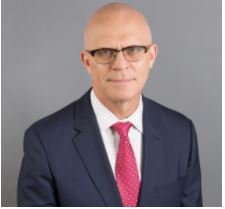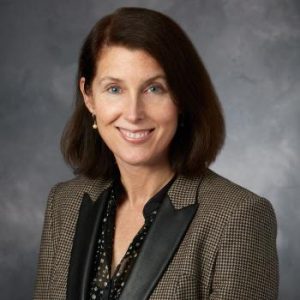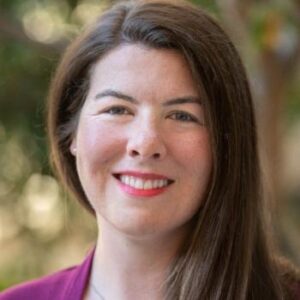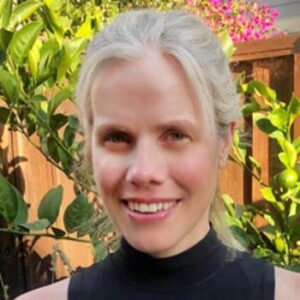SAGES 2025 Annual Meeting Emerging Technology Abstract Submission Information
SAGES 2025 Annual Meeting
March 12-15, 2025
Long Beach, CA, USA
THE CALL FOR ABSTRACTS FOR THE SAGES 2025 EMERGING TECHNOLOGY SESSION WILL OPEN OCTOBER 2024
THE CALL FOR ABSTRACTS FOR THE SAGES 2025 SCIENTIFIC SESSION
CAN BE FOUND HERE
You are invited to submit papers to The Emerging Technology Session of the SAGES 2025 Annual Meeting. The meeting will be held March 12-15, 2025 in Long Beach, CA, USA.
This session is open to submissions from physicians / industry engineers / scientists / researchers. It should be used for reporting on cutting edge or emerging technologies for which formal experimental data may not yet be available. Developers and inventors are encouraged to present their own work.
IF YOU ARE PLANNING TO SUBMIT OR DISCUSS ANY IDEAS OR INVENTIONS, before you submit or discuss them, please keep in mind that discussing or displaying them at this meeting may be considered a public disclosure of the idea or invention, which can negatively affect your right to protect that idea or invention. You may also have duties to your employer relating to that idea or invention, and should discuss the impact of a disclosure with the proper representatives of your employer before you submit or discuss it.
The Emerging Technology Abstract submissions will open October 1, 2024 and will be accepted until November 20, 2024 and will undergo an expedited review process. This session is appropriate for technologies that may still be under development. Since the Emerging Technology Session will not include CME credit, topics are not limited to formal studies or experiments but may include description based abstracts or very preliminary results. Presentations will be 5 to 10 minutes in length. Accepted abstracts will be published in the official SAGES Final Program.
Submissions should follow the following format:
- Objective of the technology or device
- Description of the technology and method of its use or application
- Preliminary results if available
- Conclusions / future directions
- 500-word limit
Presented by: Laura Graham, PhD, Health Services Researcher, Department of Surgery, Stanford University
Talk Title: “An Updated Primer to VA Data (2024)”
Bio: Dr. Graham is a health services researcher with extensive experience in data management and analysis, particularly focusing on surgical outcomes research using large administrative datasets from the Veterans Health Administration (VA) and other single site healthcare systems. Her research interests include improving the processes of clinical care using causal inference methodologies and implementation science to translate evidence into practice. Her research has significantly contributed to understanding and improving surgical outcomes, particularly within the VA healthcare system, through rigorous epidemiological and health services research methods.
Anyone can attend and happy hour conditions apply here too.
For inquiries, please contact Ana Mezynski <mezynski@stanford.edu>


Presented by: Dr. David Spain & Dr. Arden Morris
Bio: Dr. David A. Spain is the David L. Gregg, MD Professor and Chief of Acute Care Surgery. His clinical areas of specialty are emergency and elective general surgery, trauma and critical care. His research focus is assessment of clinical care, systems of care and assessment of stress response and PTSD after trauma. He is the current President of the American Association for the Surgery of Trauma. He is a Councilor of the American Board of Surgery and Director of the Surgical Critical Care board. He is the editor of the textbook Scientific American’s Critical Care of the Surgical Patient. Dr. Spain is also the General Surgery Residency Program Director at Stanford.
Bio: Arden M. Morris, MD, MPH is Professor of Surgery and Vice-Chair for Research in the Stanford Department of Surgery. She is Director of the S-SPIRE Center, a health services research collaborative to study patient-centered care, clinical optimization, and health care economics. In her own work, Dr. Morris uses quantitative and qualitative research methods to focus on quality of and equity in cancer care. She serves as vice-chair of the Commission on Cancer’s National Accreditation Program for Rectal Cancer Quality Committee, American Society of Colon and Rectal Surgeons’ representative to the American Joint Commission on Cancer, and Chair of the ACS Cancer Surgery Standards Program Implementation and Integration Committee.
Presented by:
Yewon Ashley Son, BS, Research Data Analyst, S-SPIRE Center
&
Heather Selby, PhD, Research Scientist, S-SPIRE Center, Surgery, Stanford University
Talk Title: “Using MRI, Radiomics, and AI to Predict Rectal Cancer Response: Insights from the SHORT-FOX Phase II Clinical Trial.”
Bio: Ashley Y Son, BS is a Research Data Analyst for the Stanford-Surgery Policy Improvement Research & Education Center (S-SPIRE). Ashley received her bachelor’s degree in Statistics and Data Science at the University of California, Santa Barbara.
Bio: Heather Selby is a Basic Life Research Scientist for the Stanford-Surgery Policy Improvement Research & Education Center (S-SPIRE). Heather is interested in developing medical imaging-based AI models to identify patients with locally advanced rectal cancer who achieve a clinical complete response to neoadjuvant chemoradiotherapy, with the goal of sparing them from surgery and its associated risks.
For inquiries, please contact Ana Mezynski.
Call For Abstracts
The Plastic Surgery Research Council is now accepting abstracts for their 70th Annual Meeting. Please submit your abstracts today for consideration in the 2025 Annual Scientific Program.
Submit your Abstract
Deadline: Sunday, October 6, 2024 at 11:59 PM EST
View Submission Guidelines
Accepting abstracts in the following categories:
- Aesthetic
- Breast
- Cancer
- Craniofacial
- Ethics
- Gender Affirmation Medicine/Surgery
- General Reconstruction
- Hand
- Innovation/Commercialization/Technology
- Microsurgery/Flap Physiology/Ischemia Reperfusion
- Nerve
- Patient Safety/Health Care Cost/Access to Care
- Plastic Surgery Education/Training/Leadership/Practice
- Skin/Burn/Wound Healing
- Transplant
- Vascular/Lymphatic Biology and Diseases
Presented by Dr. Wick.
Talk Title: “How Can We Leverage the EHR for Evidence-Based Surgical Care: Use Cases for Surgical Site Infection and Advanced Care Planning.”
Bio: Elizabeth C. Wick, M.D. is a professor of surgery with a clinical focus in colorectal surgery. Liza was Vice Chair of Quality and Safety at Johns Hopkins and is currently in the role at UCSF. Beyond clinical care, she has excelled as a mentor and researcher, promoting scholarship amongst trainees and junior faculty. She has been continuously funded by the NIH/AHRQ, most recently with an NIA-funded pragmatic trial to better understand implementation approaches to accelerate the adoption of advanced care planning in surgery. Previously, she led a national collaborative, in partnership with the Agency for Healthcare Research and Quality and the American College of Surgeons, around accelerating the dissemination of surgical pathways across four surgical areas (colorectal, gynecology, orthopedics, and emergency general surgery) over five years.
Anyone can attend and happy hour conditions apply here too.
For inquiries, please contact Ana Mezynski <mezynski@stanford.edu>



